 CHENGDU, China-Faced with the prospect of massive flooding from a blocked river in the highlands of Sichuan Province, the authorities have announced plans to evacuate more than a million people should the rock-and-mud embankment give way, a threat that grew more urgent on Wednesday. The herculean task of moving so many people, officials said, would have to be accomplished within four hours, the time it would take for the wall of water to inundate scores of cities and rural villages that are already grappling with the devastation caused by the May 12 earthquake.Officials spent Wednesday rehearsing plans to move people from several urban areas, many of them swollen with refugees from neighboring towns and mountain hamlets. The Chinese media described evacuation drills on Wednesday that involved shuttling a few thousand people to higher ground, although it was unclear how the authorities would move so many people if the dam suddenly gave way. In Jiangyou, a city of 300,000 people, everyone would have to be moved to safety within 70 minutes, according to The Morning News.“The efforts are aimed at getting all the 1.3 million residents on the move within four hours in case the quake lake bank fully opens, with zero deaths in the process of evacuation,” said the head of quake relief operations in the city of Mianyang, which has a population of 600,000. “Otherwise, it will mean a breach of duty on our part as government employees.”Officials on Wednesday raised the quake’s death toll by 1,000, to 68,100; 21,000 people are still listed as missing.Engineers and soldiers spent a second frantic day trying to alleviate pressure on the barrier lake at Tangjiashan, a swelling body of water that has been rising behind an avalanche that clogged the Jian River, two miles upstream from the city of Beichuan. Because the dam is inaccessible by road, the army has been using helicopters to fly in 30 excavators and bulldozers.Officials said that 600 workers have been toiling around the clock to dig a sluice that would drain away some of the water, a task that could take at least five days, Yang Hailiang, an official in charge of the operation told the official news agency Xinhua. With rain in the forecast, emergency officials have been ramping up evacuation plans.In recent days at least 160,000 people have been moved from low-lying areas, and the prospect of moving hundreds of thousands of others is likely to further strain a government struggling to provide food, water and shelter to the 15 million whose homes were destroyed.In Tongkou, the closest settlement to the dam, villagers set up a system of gongs and fireworks to warn one another of a deluge. During a practice run in Jiangyou, 1,000 people were moved in 50 minutes. In Mianyang, officials used loudspeakers to broadcast evacuation routes.
CHENGDU, China-Faced with the prospect of massive flooding from a blocked river in the highlands of Sichuan Province, the authorities have announced plans to evacuate more than a million people should the rock-and-mud embankment give way, a threat that grew more urgent on Wednesday. The herculean task of moving so many people, officials said, would have to be accomplished within four hours, the time it would take for the wall of water to inundate scores of cities and rural villages that are already grappling with the devastation caused by the May 12 earthquake.Officials spent Wednesday rehearsing plans to move people from several urban areas, many of them swollen with refugees from neighboring towns and mountain hamlets. The Chinese media described evacuation drills on Wednesday that involved shuttling a few thousand people to higher ground, although it was unclear how the authorities would move so many people if the dam suddenly gave way. In Jiangyou, a city of 300,000 people, everyone would have to be moved to safety within 70 minutes, according to The Morning News.“The efforts are aimed at getting all the 1.3 million residents on the move within four hours in case the quake lake bank fully opens, with zero deaths in the process of evacuation,” said the head of quake relief operations in the city of Mianyang, which has a population of 600,000. “Otherwise, it will mean a breach of duty on our part as government employees.”Officials on Wednesday raised the quake’s death toll by 1,000, to 68,100; 21,000 people are still listed as missing.Engineers and soldiers spent a second frantic day trying to alleviate pressure on the barrier lake at Tangjiashan, a swelling body of water that has been rising behind an avalanche that clogged the Jian River, two miles upstream from the city of Beichuan. Because the dam is inaccessible by road, the army has been using helicopters to fly in 30 excavators and bulldozers.Officials said that 600 workers have been toiling around the clock to dig a sluice that would drain away some of the water, a task that could take at least five days, Yang Hailiang, an official in charge of the operation told the official news agency Xinhua. With rain in the forecast, emergency officials have been ramping up evacuation plans.In recent days at least 160,000 people have been moved from low-lying areas, and the prospect of moving hundreds of thousands of others is likely to further strain a government struggling to provide food, water and shelter to the 15 million whose homes were destroyed.In Tongkou, the closest settlement to the dam, villagers set up a system of gongs and fireworks to warn one another of a deluge. During a practice run in Jiangyou, 1,000 people were moved in 50 minutes. In Mianyang, officials used loudspeakers to broadcast evacuation routes.During an earthquake relief cabinet meeting in Beijing on Tuesday, Hui Liangyu, a vice premier, expressed urgency, saying “any negligence will cause new disasters to people who have already suffered through the quake,” Xinhua reported. During the same meeting, Prime Minister Wen Jiabao told ministers that alleviating the risk of flooding from 34 so-called quake lakes was “the most pressing task” for the government. Officials also announced that $29 million in emergency funds would be allocated to the effort.One water resources official told Agence France-Presse that the evacuations were moving too slowly. “Sometimes local governments think that evacuation is too much trouble, and they’re betting it won’t really be necessary, because they’re not sure how big the risk might be,” he said.Cai Qihua, a local water management official, told The China Daily that the water was quickly approaching the top of the rubble wall, rising nearly seven feet a day. He said 75 feet remained until the water reached the top of the dam, although it is not clear whether that would cause the barrier to crumble. Scientists have estimated that the lake contains more than 450 million cubic feet of water.The threat of flooding comes as the authorities struggle with the aftermath of what officials say is China’s biggest natural disaster in 30 years.On Wednesday, Japanese officials said they were considering a Chinese request to provide tents and blankets to refugees currently living under tarps and bridges. During a press conference in Tokyo, Nobutaka Machimura, Japan’s chief cabinet secretary, said it was unclear whether Beijing would allow the Japanese military aircraft to deliver aid. If so, it would mark the first time that the military would touch down on Chinese soil since Japan’s brutal World War II occupation.During the cabinet meeting in Beijing on Tuesday, the ministers said the government’s relief efforts had reached a “new stage,” one that should focus on burying the dead, feeding the living and preventing an outbreak of disease through an extensive inoculation campaign. They also said work should begin on reconstruction, including the restoration of crippled industries.The ministers, however, suggested that some badly damaged towns might never be rebuilt. They said residents would be relocated, although they provided no further details. According to Xinhua, the state council urged that “social order should be maintained in the quake zones.”In several towns, parents continued to agitate for a speedy government investigation into why so many schools collapsed during the earthquake, killing thousands of students and teachers. In Shifang, more than 300 parents whose children died at the Jiandi Middle School protested at the gates of the local government, according to Boxun News.In Dujiangyan, a group of 500 parents gathered at a tent temporarily housing the city’s education bureau and demanded that provincial officials investigate why the Xin Jian school collapsed, killing at least 300 children. They also asked that those responsible be punished and that bereaved parents receive compensation.According to the father of a 9-year-old girl who died at the school, about a dozen parents were allowed to talk to officials, although they left feeling dissatisfied.“They only offered some hollow ‘official talk,’"said the man, who would give only his surname, Qin.Encouraged by another group of parents who protested in Mianzhu on Sunday, Mr. Qin said the parents would stage their own “mourning” rally on June 1, which is Children’s Day in China, a national holiday. http://www.nytimes.com/2008/05/29/world/asia/29china.html?_r=1&partner=rssnyt&emc=rss&oref=slogin
As in the days of Noah....

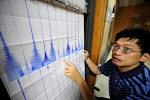

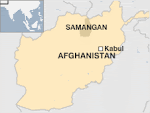







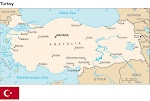
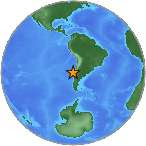




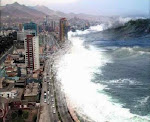

.jpg)


.bmp)
No comments:
Post a Comment